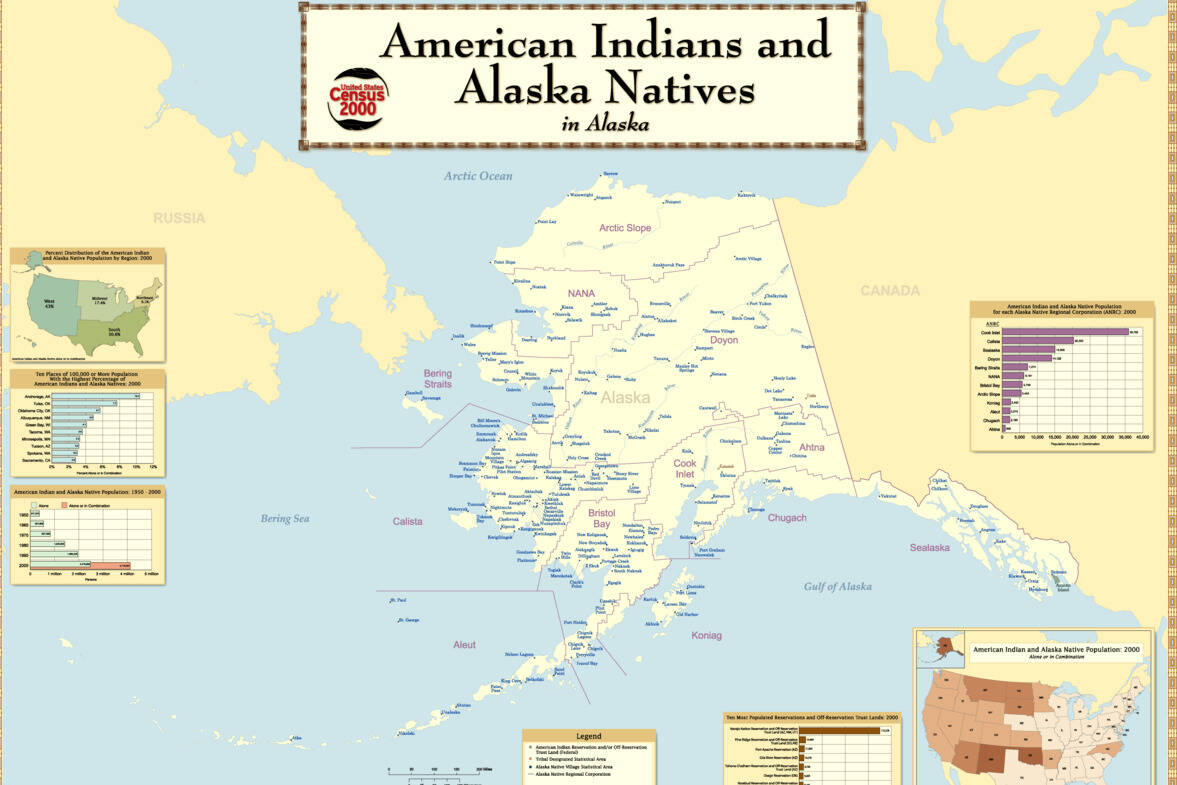Campaigners behind an effort to have the state of Alaska formally recognize the state’s 229 already federally recognized tribal governments announced on Indigenous Peoples Day they can begin collecting signatures following certification from the Division of Elections.
“Across Indian Country, we’re seeing tribes develop infrastructure and they’re forces to be reckoned with economically,” said Richard Chalyee Éesh Peterson, who’s chairing the organization behind the initiative, Alaskans for Better Government, which hopes to have the initiative on the 2022 ballot.
Tribal governments bring in vast amounts of money to communities, Peterson said, and in many communities in Alaska they’re the main form of government. But the current relationship between the state and tribal governments has been contentious, Peterson said, and the initiative was a way to urge the state to work better with tribes.
Peterson is president of the Central Council of the Tlingit and Haida Indian Tribes of Alaska but said in an interview with the Empire Monday he was acting as chair of Alaskans for Better Government, an advocacy group created specifically for the initiative. Peterson is co-sponsoring the group along with ‘Wáahlaal Gidáak Barbara Blake and La quen náay Liz Medicine Crow, according to a news release.
Blake, who is currently leading a race for a City and Borough of Juneau Assembly seat, speaking to the Empire alongside Peterson, said Alaska’s Indigenous people have been governing themselves since before the arrival of Europeans, and the state’s 229 tribes are already recognized by the federal government.
[Shortages and shipping snarls complicate local projects]
“By not recognizing our inherent sovereignty, they’re ignoring the fact we are a people that had communities which had sophisticated government structures,” Blake said. “It’s erasing us and forgetting that we exist.”
The initiative is almost identical to a bill that passed the Alaska House of Representatives in May, sponsored by Rep. Tiffany Zulkosky, D-Bethel, which itself was similar to a bill from former Rep. Chuck Kopp, R-Anchorage, in 2020 that also passed the House. Zulkosky’s bill is still in the Senate and could be passed in the next regular session.
That bill doesn’t have any language that would formally compel the state to improve its relationship with the tribes, but that wasn’t the point, Zulkosky told the Empire Monday in a phone interview. Tribes play a unique role in Alaska, Zulkosky said, one that has held up legally in court. But Zulkosky said the real goal of the legislation was to create a policy statement affirming the role that tribes play in the state and a commitment to strengthening the relationship between tribal and state government.
Tribal health groups have been working with the state since the beginning of the COVID-19 pandemic, Zulkosky said, and tribal groups continue to offer testing and vaccination services in many parts of Alaska.
“The purpose is to resolve and look to mend long-held political divisions and to acknowledge (tribes) are solid partners in the same endeavor,” Zulkosky said.
Peterson similarly acknowledged having Alaska formally recognize tribes wouldn’t force the state government to improve its relationship but said he hopes if voters approve the measure it would signal state leaders to change their approach. The relationship had improved in some areas like tribal compacting for schools and child welfare, Peterson said, but improvements have been slow and incremental.
Zulkosky too, said the relationship with tribal governments has improved recently.
“I think what we’ve seen across the country is a nationwide dialogue on racial reconciliation and working to bring communities together,” Zulkosky said. “It’s clear this is a priority for the Alaska Native community.”
With the certification on Oct. 9, the signature-gathering can now begin, Peterson said. According to the release, the campaign has until Jan. 18, 2022, to submit 36,140 signatures from qualified voters for verification and placement on the November general election ballot. Peterson said the group set up a website where Alaskans can volunteer.
Peterson said the state’s relationship with tribes has improved in recent years, but there were still difficulties. The initiative, he said, was an effort to create a better relationship with the state government.
“If they truly respected and recognized the tribes we would do a much better job serving our citizens,” Peterson said. “It’s hard to ignore what tribes can do, they can do even more when they have good relationships.”
• Contact reporter Peter Segall at psegall@juneauempire.com. Follow him on Twitter at @SegallJnuEmpire.

